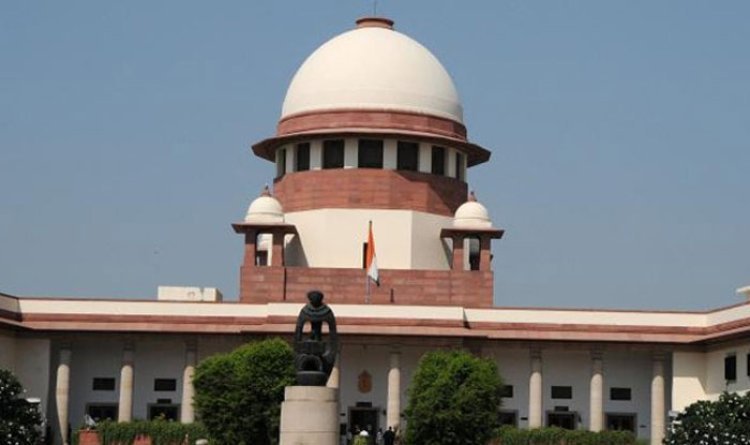Divorce by mutual consent: Supreme Court can end marriage, waiting period of 6 months is also not necessary
Supreme Court decision on Mutual Consent Divorce: In the divorce case with mutual consent, a 5-judge bench of the Supreme Court said that the court has the right to annul the marriage. If there is not even the slightest scope in connecting the relationship, then the court can intervene through the rights given under Article 142 for complete justice. The Supreme Court has issued a guideline on divorce by mutual consent. The waiting period of 6 months for divorce may also be waived.

The Supreme Court gave a major decision on divorce. The Supreme Court issued a new guideline on divorce by mutual consent. On divorce by mutual consent, a 5-judge constitutional bench of the Supreme Court on Monday said, if it is not possible to reconcile the relationship, then the court can decide on divorce by using the special powers given under Article 142 for complete justice. This decision of the Supreme Court is very important in the matter of divorce by mutual consent. Because till now there was no statutorily recognized ground for divorce. Along with this, the Supreme Court also issued a guideline while giving its verdict on divorce by mutual consent. The Supreme Court said that, if it is not possible to reconcile the relationship, the court can intervene through the powers conferred under Article 142 for complete justice. Not only this, the court said, the legal obligation of waiting for 6 months applicable for divorce by mutual consent is not necessary. Other provisions including alimony have also been included in the guidelines of the Supreme Court.
Justices Sanjay Kishan Kaul, Sanjeev Khanna, A.S. Oka, Vikram Nath, and J.K. Maheshwari were involved. The Supreme Court said we have accepted that when the relationship between husband and wife deteriorates to such an extent that it is not possible to bring them back on track, then it is possible to dissolve the marriage on this ground. It shall not violate specific or fundamental principles of public policy.
Not only this, the Supreme Court in the guideline mentioned the factors on the basis of which a marriage can be considered irretrievably broken. Not only this, but the guidelines of the Supreme Court also mention maintenance, alimony and rights of children.
The Supreme Court said that it can allow the separation of husband and wife by mutual consent without sending them to the Family Court. A bench headed by Justice Sanjay Kishan Kaul said that if there is mutual consent, the mandatory 6-month waiting period for divorce can also be waived with certain conditions. The court said that it can allow the couple desirous of divorce by mutual consent to live separately without sending them to the family court.
A five-member bench of the Supreme Court reserved its decision on five petitions on September 29, 2022. The Supreme Court said that social change takes some time and sometimes it is easy to bring a law, but it is difficult to persuade society to change with it.
In fact, the core issue in the case referred to the Constitution Bench was whether the mandatory waiting period for divorce by mutual consent under Section 13B of the Hindu Marriage Act can be dispensed with. However, in the hearing, the Supreme Court bench also decided to consider the issue of whether marriages can be dissolved on the ground of irretrievable breakdown.










